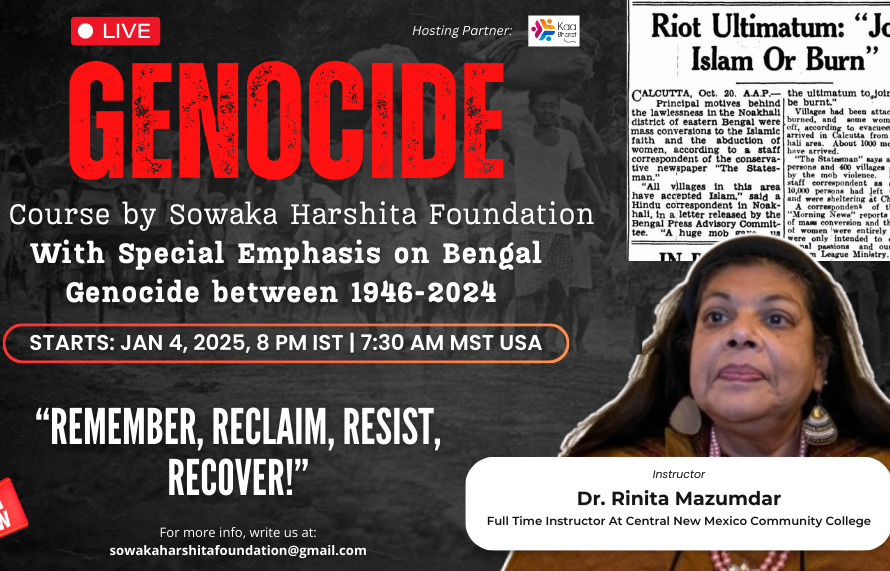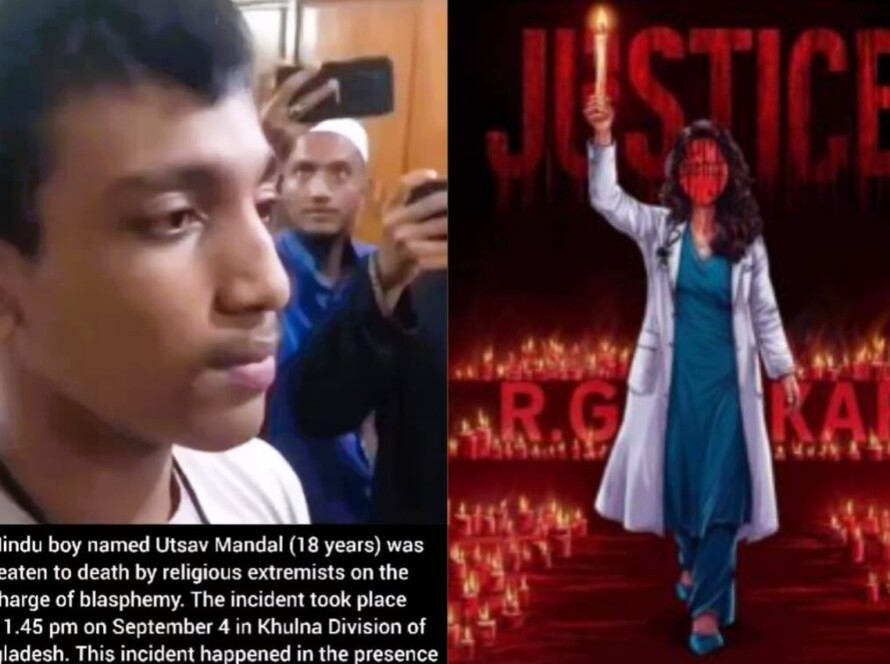According to Raphael Lemkin, genocide is, “… the destruction of a nation or an ethnic group… genocide does not necessarily mean the immediate destruction of a nation, except when accomplished by mass killings of all members of a nation. It is extended rather to signify a coordinated plan of different actions aiming at the destruction of essential foundation of the life of national groups, with the aim of annihilating the groups themselves.”
Is forced religious conversion also genocide? As Raphael Lemkin says, that genocide is not necessarily the immediate destruction of a nation, but a coordinated plan of different actions aiming at the destruction of essential foundation of the life. One’s faith is deeply connected to one’s identity and one’s Worldhood, to use a word from Heidegger. Apart from gender, one’s faith gives one a identity. There are other identities like race or class. When modern nations were not constructed faith or shared culture was the basis of a community and within that community one’s primary identity was one’s faith. Here we cannot take faith in the sense of an organized religion. Here is a sense of the identity in pre colonial Africa that both covers race, nation, as well as faith:
“African languages have no equivalent for the Western word “religion” or indeed “ritual” so in order to consider the religions of Christianity and Islam, they have to start using an alien and imported word. Similarly the practitioners of African traditional religions do not look upon their religious beliefs and practices as a distinct set of activities separated from economic or other ones, nor are they defined as the religions of Yoruba, Zulu or Kamba. People as if they were national churches. An old traditionalist on being asked his religion would reply, “I am a Zulu.”
Consequently, even though Africans are pervasively religious one cannot talk of “religion” per se in traditional African terms. In other words one can talk of “religiosity but not “religion” if the formed is seen as the awareness and quest for metaphysical phenomena while the latter is seen in terms of a codified and institutionalized set of doctrines and ritual practices. The African way of life in every aspect is immersed in “religion”, so much so that to ask him/her what is religion is like asking : who are you? As a Chinese proverb has it, “If you want a definition of water, do not ask a fish.” The only definition of “Religion” to the African, there is that it is indefinable; because “the religion of Africa does not live in the pages of books on “world religions”, rather it lives in the hearts and lives of people. (The Legacy of Arab-Islam In Africa, John Alembillah Azumah, One world.
So, when one is forcibly converted, one loses not only one’s sense of anchorage, but also one’s sense of purpose and the entire meaning of one’s being.



